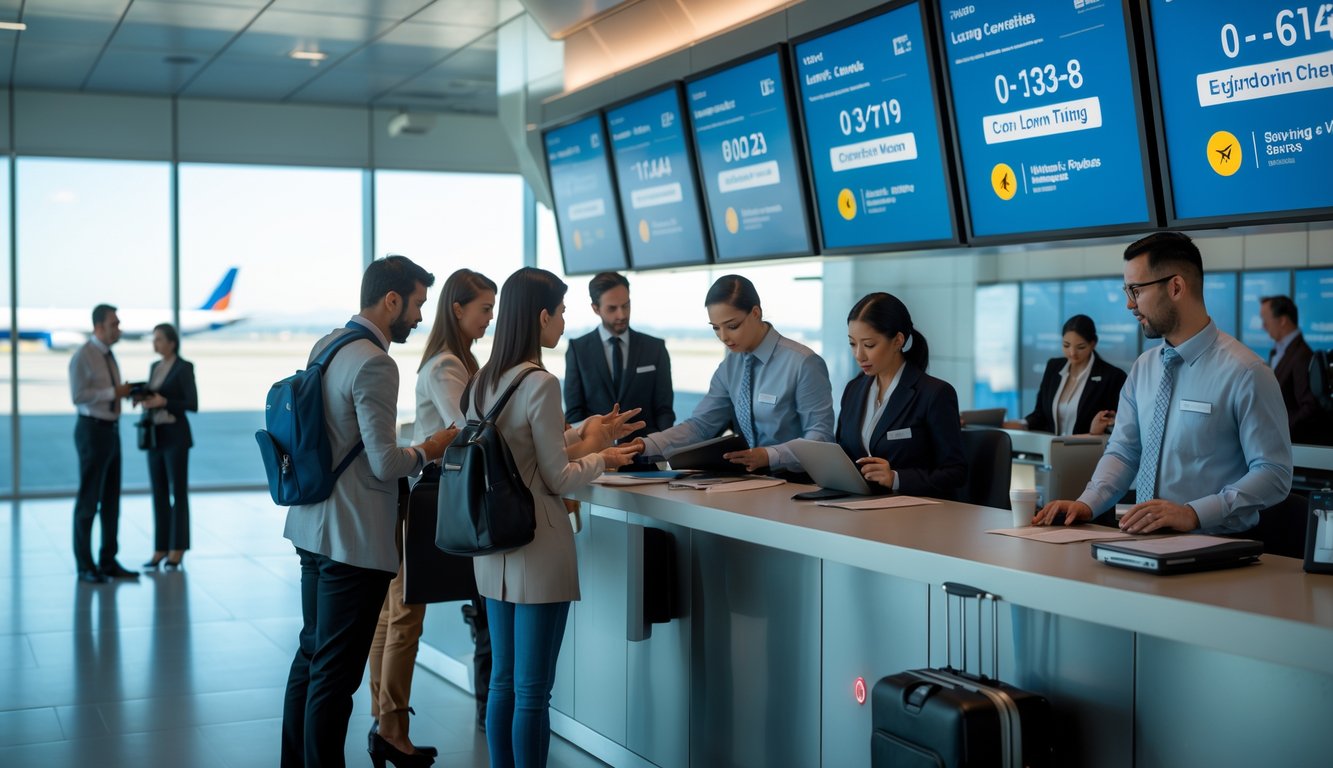
So, I’m staring at my Qantas account. No idea what just happened—my flight credit lost its expiry date? Qantas yanked the December 31, 2023 expiry from older credits, so now I can supposedly request a refund whenever… unless it’s one of those zombie credits that can’t be used for anything anyway? Alaska Airlines, meanwhile, handed someone a five-year credit (five years?!), but Southwest? They’re out here acting like credits never expire, which feels fake but apparently isn’t. Virgin, though, is still keeping your money unless you hustle before the year ends. I watched a friend last week book a total nonsense route, cancel it, and—presto—his credit turned into a new voucher. That “cancel-to-extend” trick? It’s real, but who has the spare time or brain cells for that?
But yeah, the expiry dates are just…poof, gone for some people, then slamming shut for others. If you had a Qantas credit from July 2022, you’re toast. I’ve never seen so much chaos in travel forums—not even during the pandemic flight apocalypse. Agents flat out say, “rules change every week, sir,” which is both honest and depressing. Reading fine print? Pointless. Airline press releases and twitchy terms and conditions updates are the only way to keep up. Expedia tricks I used last year? Dead.
You think you get twelve months. Nope. Depends when you bought, what refund loophole you tripped into, and maybe the phase of the moon. Wait too long and your trip just disappears. My only actual advice: check your own expiry dates now, and don’t trust what worked for your friend, or what the airline said last time. None of it’s consistent.
What Are Flight Credits and How Do They Work?
Nobody wants to wake up and find out their flight credit just vanished, but here I am, juggling three “credits” that all work differently. It’s honestly like a bad game show. Airline credits? Not the same. Some have rules that make zero sense. I’ve lost credits to expiry more than once and it stings every time. The line between “use it for a new flight” and “stuck with a useless voucher” is blurry, arbitrary, and, yeah, annoying.
Differences Between Flight Credits, Travel Credits, and Vouchers
Every airline makes up its own names. Once, American Airlines gave me a “flight credit.” United called theirs a “travel certificate.” (Spoiler: not the same.) Delta’s eCredits are easy online—if you don’t forget your login or screw up the confirmation code.
Marketing emails pretend these are all the same, but the fine print is a mess. Flight credits usually stick to the original passenger. Travel credits or funds might be transferable, or maybe not. Vouchers? They just expire, sometimes can’t be used online, and sometimes don’t even cover taxes and fees. You’d think they’d at least warn you, but nah.
Expiry dates? Hidden. Southwest sometimes shows it, sometimes doesn’t. JetBlue’s travel funds? Gone in a year. American’s credits get weirder if you try calling an agent instead of booking online. I don’t get it.
Understanding Airline Credits and Travel Funds
I’ve typed in a credit code, tried to add my card, and—nope—only three payment forms allowed, and every credit counts as one. Southwest buries that rule in their FAQ. I had to call support and the agent sounded like I’d asked about the weather on Mars.
Sometimes credits show up instantly after a cancellation, sometimes days later. Non-refundable ticket? You’re probably getting a credit, not cash. American Airlines’ June 2025 policy says basic economy tickets just… evaporate. No credit, no refund, nothing. It’s like, “thanks for your money, goodbye.”
Airline credits aren’t like store gift cards. They expire. The backend rules are mysterious. An Alaska agent once told me, “Just rebook, then cancel again, that’ll reset the expiry.” Like that’s obvious. And don’t expect credits to cover the whole fare—often, you end up with a leftover balance that’s a pain to use next time.
How Airline Credits Apply to New Flight Bookings
Applying credits? Sometimes feels like a cheat code, sometimes like a trap. Southwest lets you use up to three credits per booking, but a fourth payment? Get out. American’s website? One credit, then you have to call. Why?
If your new flight costs more than your credit (which, of course, it does—prices magically go up near expiry), you’re forced to use a credit card. No cash, no PayPal, and don’t even try to mix in points. Delta’s site lets me stack two eCredits… or just errors out and tells me to try again later. I screenshot everything now, just in case.
Vouchers? Sometimes work, sometimes don’t, especially online. Depends on the fare, the route, the phase of the moon. Try booking for someone else or a complicated trip and you’ll probably get stuck. Suddenly, credits feel more like IOUs I can’t redeem, and if I mess up, customer support just shrugs and blames the terms.
Recent Changes to Flight Credit Expiry Policies
My inbox is full of “updates” from airlines, and suddenly every carrier is quietly ditching the “no expiry” promise. These changes aren’t making headlines—just buried in baggage fee updates or some new fare class. Expiry rules, timing, and my own credits haven’t felt this sketchy since before 2020.
Why Airlines Quietly Updated Expiration Rules
Airlines used to brag about “no expiry” credits. Now, they’re quietly rolling back to the old way: hard expiry dates. Why? Money, probably. United’s PR guy told The Points Guy in June 2024 that “maintaining credit liquidity is paramount for operational planning.” Translation: they want to recognize revenue, not sit on liabilities.
Six months, twelve months—these cutoffs aren’t for me. CFOs love “breakage”—all those expired credits pad their bottom line. Avianca’s 2023 earnings? $91 million in expired vouchers. Not small potatoes. Airlines blame “system upgrades” or “industry alignment.” Delta literally hid their change in a fare rules appendix while talking up “customer flexibility.” Sure.



